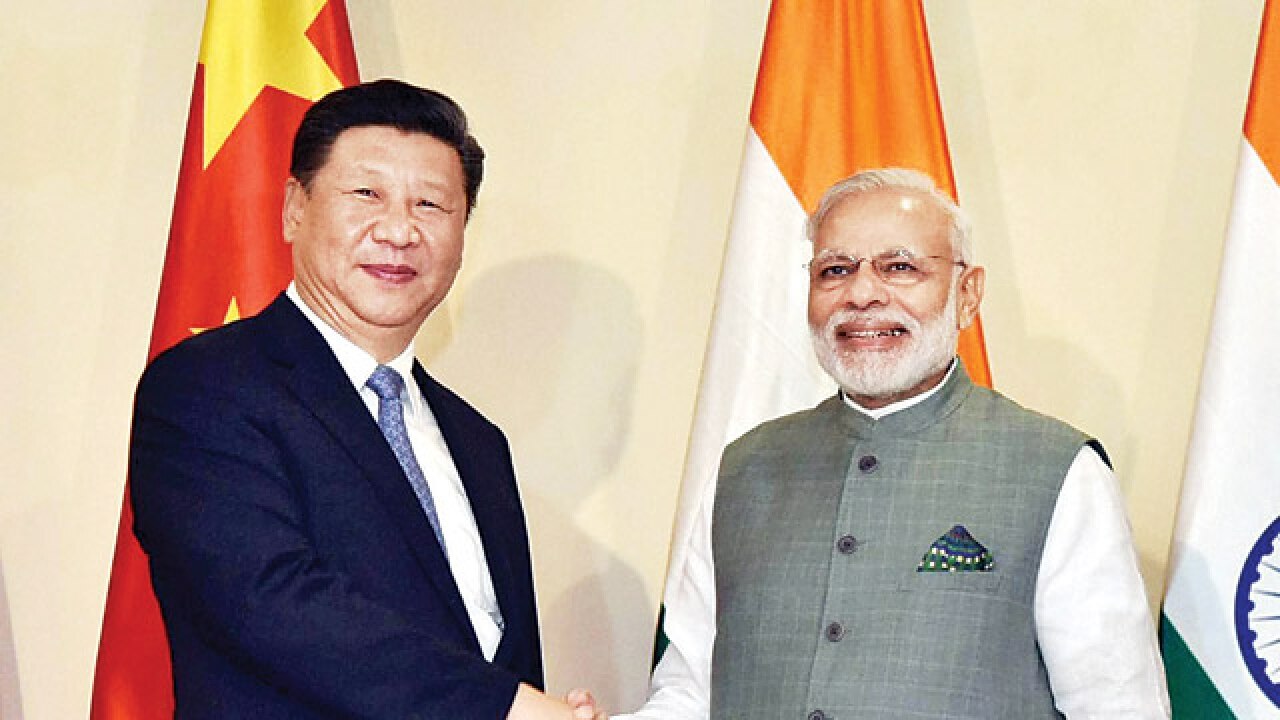
The recent BRICS summit in Goa highlighted the grouping’s search for a common identity, with China representing the biggest challenge to its future. Just as China dominates the institutions of which it is a founding member —from the Shanghai Cooperation Organization to the Asian Infrastructure Investment Bank (AIIB)—it is using BRICS to assertively push its own interests.
China already dominates the two instruments BRICS has fashioned — the New Development Bank (NDB) and the $100-billion Contingent Reserve Arrangement. It outmanoeuvred India to host the NDB at Shanghai, offering New Delhi a consolation prize—an Indian as the bank’s first President.
Today, China is in the happy situation of overseeing the NDB and the AIIB. Leading two new banks fits well with Beijing’s strategy to create an “economic hub-and-spoke system” via energy pipelines, strategic highways and ports, and railroad networks. In this scheme, China, as the hub, seeks to draw in raw materials and other natural resources from the spokes, while exporting industrial and consumer goods to them.
China’s objective clearly is to expand its clout at the expense of the other BRICS members and, more importantly, the US, which maintains a military hub-and-spoke system.
Against this background, it is not a surprise that China is a revisionist power with respect to the global financial architecture, but a status quo power in regard to the United Nations system. In other words, China supports international institutional reforms that give it a greater say but locks measures that will dilute its existing status.
So, it is an obstacle to restructuring and democratising the Security Council. It wants to remain Asia’s sole permanent member of the Security Council. It is also unlikely to agree to India’s admission to the Nuclear Suppliers Group.
How a domineering China is using BRICS to advance its own agenda is exemplified by its push to expand the international role of its currency by lending and trading in renminbi with the other BRICS members. Meanwhile, China’s hidden export subsidies are steadily undermining manufacturing in the other BRICS states, even as its adept use of tariff and non-tariff barriers shuts out, from its own market, goods and services in which they have a comparative advantage.
Consequently, China’s trade surplus with India has doubled since 2014 alone, threatening India’s domestic manufacturing base. An article last month in China’s state-run Global Times mockingly said: “Let the Indian authorities bark about the growing trade deficit with China. The fact of the matter is they cannot do anything about it.”
At the Goa summit, Chinese President Xi Jinping flexed his muscles to shield Pakistan from its sponsorship of terrorism. Consequently, the Goa Declaration mentioned the Islamic State, al-Qaeda and al-Nusra but not any of the UN-designated terrorist groups based in Pakistan. Xi also succeeded in keeping the South China Sea issue out of the declaration.
Xi in Goa called for “political solutions” to “regional hotspots” even as his government adds fuel to regional fires through a relentless territorial creep in the South China Sea and by embarking on a $46-billion corridor to the Indian Ocean through Pakistan-held Jammu and Kashmir, a UN-recognized disputed region. How can BRICS create rules-based cooperation among its members if international norms of conduct are flouted in such a manner?
The Goa summit indeed was a reminder of China’s lengthening shadow over BRICS. As China uses the grouping to advance its interests, BRICS has been left carrying the can.
The risk is real that the grouping could collapse under the weight of the BRICS wall of China that is being erected.
Brahma Chellaney is a geostrategist and author.